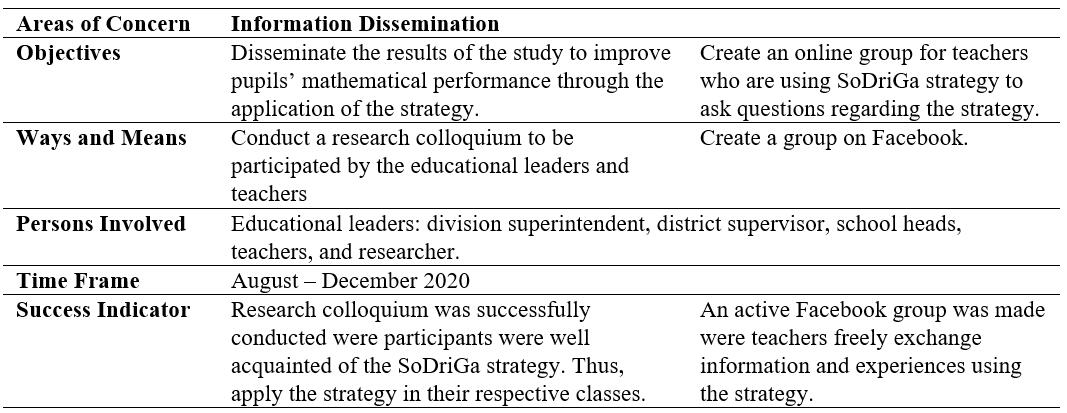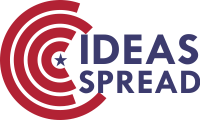Effectiveness of Song, Drill and Game Strategy in Improving Mathematical Performance
Abstract
This study examined the effectiveness of SoDriGa strategy in teaching mathematics among 4th-grade pupils of Batangas State University ARASOF- Nasugbu Laboratory School. The data from the results of TIMSS (2003) and PISA (2018) revealed that there were poor mathematical performances among Filipino learners. On the need to address this issue on enhancing mathematics instruction, it is imperative that relevant efforts to be conducted to improve performance among Filipino learners. The aforementioned innovation in teaching is consonant to the provisions of Section 10.2 paragraph (a), (d), and (k) of Republic Act 10533, Enhanced Basic Education Act of 2013, that the curriculum shall be learner- centered, contextualized, and flexible enough to enable and allow schools to localize and indigenize instructional materials. Using multiple pre- and post-tests design, the findings revealed that respondents consistently performed well in their post-test. The result suggested that SoDriGa was a helpful study tool as it increased cognitive gains, motivation and built positive attitude towards learning mathematics while pupils’ mastery and retention of concepts being taught were improved. Thus, SoDriGa as an effective strategy may be adapted and implemented in schools to enhance mathematics’ instruction and further improve pupils’ performance.
References
Arthur, C., Badertscher, E., Goldenberg, P., Moeller, B., McLeod, M., Nikula, J., & Reed, K. (2017). Strategies to improve all students’ mathematics learning and achievement. Waltham, MA: EDC.Anderson, C. A., Gentile, D. A., & Buckley, K. E. (2007). Violent video game effects on children and adolescents: Theory, research and public policy. https://doi.org/10.1093/acprof:oso/9780195309836.001.0001
Barker, C. (2008). Teacher, producer create CD for math success. New York Amsterdam News, 99(16), 32. Retrieved from Academic Search Premier database.
Beck, C. A. J., & Sales, B. D. (2001). Family mediation: Facts, myths, and future prospects (pp. 100-102). Washington, DC: American Psychological Association. https://doi.org/10.1037/10401-000
Binkiewicz, D. (2006). Tunes of the times: historical songs as pedagogy for recent US history. History Teacher, 39(4), 515-520. Retrieved from Education Research Complete database. https://doi.org/10.2307/30037071
Bose, K., & Seetso, G. (2016). Science and mathematics teaching through local games in preschools of Botswana. South African Journal of Childhood Education, 6(2), a453. https://doi. org/10.4102/sajce.v6i2.453
Crowther G. (2012). Using science songs to enhance learning: an interdisciplinary approach. CBE Life Sci. Educ., 11(1), 26-30. https://doi.org/10.1187/cbe.11-08-0068.
National Education Testing and Research Center. (2012). NAT overview and 2012 results.
De Freitas, S., & Griffiths, M. (2008). The convergence of gaming practices with other media forms: what potential for learning? A review of the literature. Learning, Media and Technology, 33(1), 11-20. Department of Education. (2016). K to 12 science curriculum guide. https://doi.org/10.1080/17439880701868796
Department of Education. (2019). PISA 2018 national report of the Philippines. Department of Education Complex, Meralco Avenue, Pasig City, Philippines.
Fengfeng, K. (2008a). A case study of computer gaming for math: engaged learning from gameplay? Computers and Education, 51(4), 1609-1620. https://doi.org/10.1016/j.compedu.2008.03.003
Fengfeng, K. (2008b). Computer games application within alternative classroom goal structures: cognitive, metacognitive, and affective evaluation. Educational Technology Research and Development, 56(5-6), 539-556. https://doi.org/10.1007/s11423-008-9086-5
Governor, D., Hall, J., & Jackson, D. (2013). Teaching and Learning Science Through Song: Exploring the experiences of students and teachers. International Journal of Science Education, 35, 3117-3140. https://doi.org/10.1080/09500693.2012.690542
Kagan, S. L., & Lowenstein, A. E. (2004). School readiness and children’s play: Contemporary oxymoron or compatible option? In E.F. Zigler, D. G. Singer & S. J. Bishop-Joseph (eds.), Children’s play: The roots of reading, Zero to three Press, Washington, DC.
Kebritchi, M., Hirumi, A., & Bai, H. (2010). The effects of modern mathematics computer games on mathematics achievement and class motivation. Computers and Education, 55(2), 427-443. https://doi.org/10.1016/j.compedu.2010.02.007
King, F. (2018). Music Activities Delivered by Primary School Generalist Teachers in Victoria: Informing Teaching Practice. Australian Journal of Teacher Education, 43(4). Retrieved from http://ro.ecu.edu.au/ajte/vol43/iss4/10
Lehtinen, E., Hannula-Sormunen, M., McMullen, J. & Gruber, H. (In press). Cultivating mathematical skills: From drill-and-practice to deliberate practice. ZDM Mathematics Education.
Levine, L. J., & Edelstein, R. S. (2009). Emotion and memory narrowing: a review and goal-relevance approach. Cognition Emotion, 23, 833-875. https://doi.org/10.1080/02699930902738863
National Education Testing and Research Center. (2012). NAT overview and 2012 results.
Papastergiou, M. (2009). Digital game-based Learning in high school Computer science education: impact on educational effectiveness and student motivation. Computers and Education, 52(1), 1-12. https://doi.org/10.1016/j.compedu.2008.06.004
Pariakian, R., & Lerner, C. (2010). Beyond twinkle, twinkle: using music with infants and toddlers. YC: Young Children, 65(2), 14-19. Retrieved from Education Research Complete database.
Perrotta, C., Featherstone, G., Aston, H., & Houghton, E. (2013). Game-based Learning: Latest Evidence and Future Directions (NFER Research Programme: Innovation in Education). Slough: NFER.
Polya, George. (1945 & 1962). 4 Problem solving steps. Retrieved May 2015.
Rathakrishnan , M., Raman, A., & Haniffa, M. (2017) . The effectiveness of drill and training methods in science subject among form one students.
Sagge, Roberto G., & Bacio, Salvador P. (2015). Music: effects on students’ habits of mind, disposition, and test anxiety as bases for the development of music enhanced mathematics program. Paper presented at the 3rd International Conference on education for Sustainable Development. Punta Villa Resort, Arevalo, Iloilo City, Philippines.
Scriven, M., & Paul, R. (2015). Defining critical thinking, defining critical thinking.
Singer, M. (2008). Accessing the musical intelligence in early childhood education. Australian Journal of Early Childhood, 33(2), 49-56. Retrieved from Education Research Complete database. https://doi.org/10.1177/183693910803300208
Trawick-Smith, J., Swaminathan S., & Liu, X. (2016) The relationship of teacher-child play interactions to mathematics learning in preschool. Early Child Development and Care , 186(5), 716-733. https://doi.org/10.1080/03004430.2015.1054818
Tsin, Y. P. (2015). Composing songs for teaching science to college students. Sunway College, Jalan University, Malaysia. Retrieved from http://www.hrpub.org
Turgut, S., & Temur, O. (2017). The Effect of Game-Assisted Mathematics Education on Academic Achievement in Turkey: A Meta-Analysis Study. International Electronic Journal of Elementary Education, 10(2). https://doi.org/10.26822/iejee.2017236115
Viladot, L., Casals, A., Jilton, C., & Saunders, J. (2018). The integration of music and mathematics education in Catalonia and England: Perspectives on theory and practice. https://doi.org/10.1080/14613808.2017.1290595
Vogel, J. J., Vogel, D. S., Cannon-Bowers, J., Bowers, C. A., Muse, K., & Wright, M. (2006). ‘Computer gaming and interactive simulations for learning: a meta-analysis. Journal of Educational Computing Research, 34(3), 229-243. https://doi.org/10.2190/FLHV-K4WA-WPVQ-H0YM
Wood, E., & Attfield, J. (2005). Play, learning and the early childhood curriculum. London: Paul Chapman Publishing. https://doi.org/10.4135/9781446280393
Ya-Ting, C. Y. (2012). Building virtual cities, inspiring intelligent citizens: Digital games for developing students’ problem solving and learning motivation. Computers and Education, 59(2), 365-377. https://doi.org/10.1016/j.compedu.2012.01.012


This work is licensed under a Creative Commons Attribution 4.0 International License.
Copyright for this article is retained by the author(s), with first publication rights granted to the journal.
This is an open-access article distributed under the terms and conditions of the Creative Commons Attribution license (http://creativecommons.org/licenses/by/4.0/).








1.png)

















